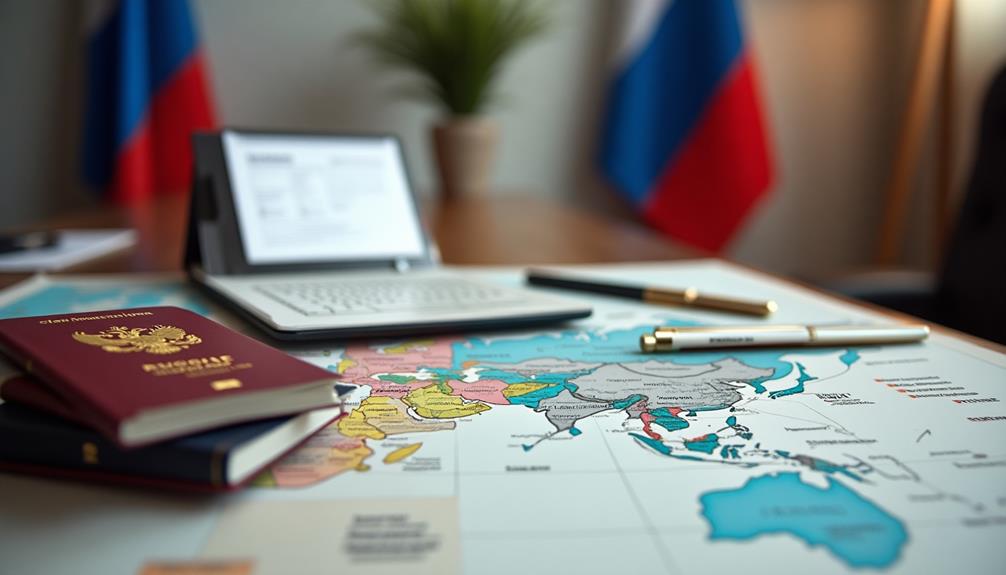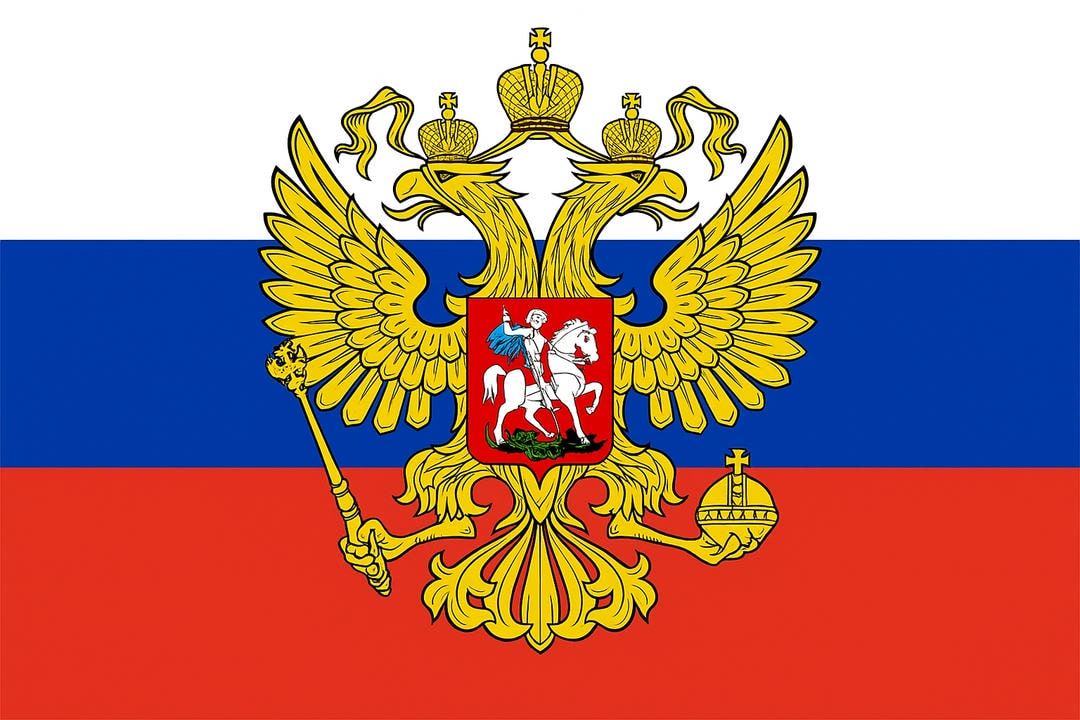Disclaimer
When considering a move to Russia, it is essential to recognize that the information provided in this article is intended for general guidance only. Individual experiences may vary significantly due to personal circumstances, changes in regulations, or local conditions. Readers are encouraged to conduct thorough research and consult with professionals or local authorities for the most current and relevant advice tailored to their specific situation. The author and publisher disclaim any responsibility for actions taken based on the content herein.
Developing a Well-Thought-Out Plan
Relocating to Russia presents a unique set of challenges and opportunities, making it imperative to establish a detailed plan before starting on this journey. Understanding the intricacies of Russian culture, maneuvering through the bureaucratic red tape, and ensuring financial stability are just a few components of a successful change. Language proficiency and employment prospects also play significant roles in shaping your experience abroad. As you consider this significant move, it becomes clear that a strategic approach can pave the way for a smoother integration. But what are the key elements that can truly make or break your Russian adventure?

A well-thought-out plan is indispensable when considering a move to Russia, given the complexities and nuances of adapting to a new cultural, legal, and social environment.
Thorough preparation guarantees a smoother change by addressing key elements: understanding cultural expectations, maneuvering legal implications, evaluating housing options, securing healthcare access, and managing transportation logistics.
Cultural expectations can influence social interactions and integration, while legal implications, such as visa requirements and residency regulations, require meticulous attention.
Each aspect will essentially effect your life, thus, highlighting the necessity of a thorough plan.
Financial Considerations
When planning a move to Russia, it is essential to conduct a detailed financial analysis for the initial months to guarantee a stable change. A thorough budget should account for initial expenses such as housing costs, which will vary by location.
Understanding currency exchange rates is vital, as fluctuations can impact your purchasing power and overall budget. Additionally, securing an emergency fund is imperative to address unforeseen expenses or economic shifts.
Health insurance should not be overlooked, as it guarantees access to necessary medical services without financial strain. Thorough preparation encompassing these elements will facilitate a smooth changeover, minimizing financial disruptions.
Understanding the Temporary Residence Permit (TRP) process
Maneuvering the Temporary Residence Permit (TRP) process in Russia requires a strategic approach, as it is an indispensable step for those planning a prolonged stay.
Key TRP application tips include ensuring completeness and accuracy of documentation requirements, such as proof of income and accommodation, to avoid delays. Understanding processing timelines is important; the TRP can take up to six months for approval.
Common pitfalls involve submission of incorrect documents or missing deadlines, which can complicate the process. Awareness of these factors and seeking legal expertise is essential for a smooth journey.
Additionally, the renewal process must be initiated well before the TRP expires to prevent legal issues. A well-prepared plan mitigates challenges and facilitates a successful shift to living in Russia.
Assessing Your Professional Skills
Understanding your unique skills and qualifications is fundamental in establishing your value proposition when considering a move to Russia. Conducting a thorough skills assessment allows you to identify strengths that can be leveraged in a new environment.
Conducting thorough research on the Russian job market and understanding industry trends is vital for identifying where your skills may be in demand. Engaging in networking events can provide valuable insights and connections, enhancing your understanding of the local professional landscape.
Emphasizing skill development tailored to Russian industry needs will bolster your employability. Additionally, resume optimization is important; aligning your experience with local expectations can greatly improve job prospects.
Language Proficiency: A Critical Factor

Mastering the Russian language beyond a basic conversational level is vital for anyone planning to relocate to Russia, as it greatly enhances both personal and professional opportunities.
Achieving proficiency requires a strategic approach, integrating language immersion techniques and cultural exchange programs to foster a deeper understanding of nuances and idioms. Advanced language courses offer structured learning pathways, while professional language tutors can provide personalized instruction tailored to individual needs.
Engaging with community language groups facilitates practical application and encourages interaction with native speakers in a supportive environment. Such extensive language acquisition not only aids in maneuvering complex social and business contexts but also enriches cultural experiences, ensuring a more seamless integration into Russian society.
Proficiency consequently becomes an essential asset.
Employment Considerations
Before relocating to Russia, it is essential to conduct thorough research on the employment landscape to guarantee a smooth shift. Understanding the job market is critical; sectors like technology and finance often offer more opportunities.
Effective networking strategies can greatly enhance job prospects, as personal connections are valued in Russia. Tailor your resume to align with local standards, focusing on relevant experience and skills.
An awareness of workplace culture is important; hierarchical structures and formal communication are typical. Investing in professional development, such as language courses or industry-specific certifications, can make a competitive difference.
Teaching English in Russia

The English-teaching landscape in Russia presents a complex interplay of opportunities and challenges that require careful navigation by prospective educators. The market demand for English teachers remains robust, spurred by globalization and Russia’s increasing economic engagement.
However, understanding cultural differences is essential, as they profoundly influence teaching methodologies. Russian students may expect a formal and structured approach, contrasting with Western methods that emphasize interaction.
Certification requirements can vary; possessing a TEFL or CELTA often enhances job placement prospects. Prospective teachers must research specific institutional preferences to align their qualifications accordingly.
While teaching positions are available across various settings, including private language schools and corporate environments, competition can be intense, particularly in urban centers where opportunities are most concentrated.
Understanding the dynamics of the English teaching market in Russia sets the stage for evaluating salary expectations and living costs, which are essential considerations for any prospective educator.
Although Moscow and Saint Petersburg present higher salaries, they also have a higher cost of living compared to other regions. Expatriate benefits, such as housing allowances and health insurance, may often supplement income, enhancing overall compensation packages.
Establishing a robust student base and effective networking channels is pivotal for success in the English teaching market in Russia. Engaging with student organizations can provide access to motivated learners and facilitate classroom opportunities.
Attending networking events allows educators to connect with fellow teachers, share experiences, and exchange teaching methodologies. Mentorship programs can offer valuable insights into the cultural nuances of Russian students, enhancing teaching effectiveness.
Participating in cultural exchanges fosters a deeper understanding of local customs, encouraging student engagement and retention. Additionally, joining online communities dedicated to English teaching in Russia can expand an educator’s reach and provide support through shared resources.
Remote Work Options
When considering remote work options in Russia, it is essential to understand the legal implications of working with U.S.-based companies, including any tax obligations and compliance with local labor laws.
Additionally, effectively steering online work in Russia requires reliable internet access and an understanding of regional restrictions that may impact communication and productivity.
Balancing time zones and work schedules can present challenges, necessitating strategic planning and flexibility to guarantee alignment with the operating hours of U.S. employers.
Maneuvering the legal landscape of working remotely for U.S.-based companies while residing in Russia requires a nuanced understanding of both Russian and American laws.
Visa regulations are essential, as working remotely might necessitate a specific visa category. In addition, tax implications must be carefully considered; individuals may face dual tax obligations, necessitating awareness of treaties between the U.S. and Russia.
Employment contracts should clearly outline terms, guaranteeing compliance with both jurisdictions’ laws. Cultural differences may impact remote collaboration, requiring sensitivity and adaptability in communication styles.
Understanding these aspects is fundamental to avoid pitfalls and guarantee legal compliance. Engaging with legal professionals knowledgeable in both countries’ regulations is advisable to navigate these complexities effectively, guaranteeing a seamless remote work experience.
Navigating online work while in Russia
As individuals navigate the legal intricacies of working with U.S.-based companies from Russia, they must also consider the practicalities of remote work options available within the country.
Freelance opportunities abound, allowing digital nomads to leverage their skills in diverse fields. Remote collaboration tools facilitate seamless communication and project management, vital for maintaining productivity across borders.
Effective time management becomes essential, especially when coordinating with teams in different time zones. Networking strategies can enhance visibility and create connections that foster new opportunities in the Russian market.
Understanding the local digital infrastructure and adapting to its nuances guarantees smoother operations. Ultimately, being informed about these aspects allows individuals to maximize their remote work potential in Russia, aligning professional goals with geographical flexibility.
Balancing time zones and work schedules
Coordinating work schedules across different time zones presents a complex challenge for remote workers in Russia collaborating with international teams. Effective time zone management is essential to guarantee seamless remote collaboration.
Utilizing scheduling tools like Google Calendar or World Time Buddy can facilitate aligning work hours, thereby enhancing productivity. It is imperative to establish a work-life balance, making certain that business engagements do not encroach upon personal time.
Productivity tips include setting clear boundaries between work and leisure and prioritizing tasks based on time sensitivity. Remote workers should remain adaptable, acknowledging that occasional schedule adjustments may be necessary to accommodate team meetings or deadlines.
Legal and Documentation Requirements

When planning a move to Russia, it is essential to familiarize yourself with the important legal documents and processes, particularly if marriage to a Russian citizen is a possibility.
Obtaining a Non-Impediment to Marriage form is a necessary step, and it requires careful coordination with your home country’s authorities.
Additionally, the Apostille process is significant for validating important documents, ensuring they are recognized by Russian legal systems, which can streamline your shift and future personal plans.
Understanding the Non-Impediment to Marriage Form
Maneuvering the legal landscape of marriage in Russia requires a thorough understanding of essential documents, among which the Non-Impediment to Marriage form holds significant importance. This document confirms that no legal obstacles prevent an individual from marrying.
Understanding marriage legality in Russia necessitates awareness of the document requirements for this form. The application procedures typically involve obtaining the form from the applicant’s home country, often facilitated through embassy involvement.
It is essential to guarantee that the form undergoes a proper notarization process, which is usually executed by the embassy or consulate. This step validates the document’s authenticity, making it legally acceptable in Russia.
Fulfilling these requirements is critical for a seamless marriage registration process in the country.
Apostille process for important documents
Steering through the apostille process is an essential step in ensuring the legal recognition of important documents when moving to Russia. Document authentication serves to validate the legitimacy of documents such as birth certificates, educational diplomas, and legal agreements.
This process often involves international notarization, a critical component in meeting Russia’s legal standards. Proper legal document preparation is paramount, as incomplete or incorrect documentation could lead to delays or rejection.
Embassy services can be instrumental in guiding individuals through this intricate procedure, offering insights into specific requirements and timelines. Additionally, document translation is often necessary, ensuring that all documents are accurately rendered into Russian.
Understanding these facets aids in a seamless progression, safeguarding against potential legal obstacles.
Preparing for potential marriage to a Russian citizen
Entering into a marriage with a Russian citizen necessitates a thorough understanding of the legal and documentation requirements involved.
Prospective spouses must navigate cultural differences and align relationship expectations, which can be influenced by traditional Russian family dynamics.
Legal requirements include obtaining a marriage visa, completing a premarital medical examination, and securing necessary documents such as a certificate of no impediment to marriage.
Understanding these prerequisites is crucial to guarantee compliance with Russian law.
Additionally, developing robust support systems, both locally and abroad, can aid in managing potential challenges.
Being aware of the cultural context and legal landscape will guarantee a smoother change into married life, fostering a healthy, well-informed partnership that respects both partners’ backgrounds.
Navigating Russian Bureaucracy
Steering through the complexities of Russian bureaucracy necessitates careful planning and informed decision-making.
Engaging a local lawyer can be invaluable in understanding the intricate pathways to residency and citizenship, ensuring compliance with Russian laws and regulations.
Such professional guidance can mitigate potential pitfalls and streamline the process, ultimately facilitating a smoother changeover for those moving to Russia.
Importance of Hiring a Local Lawyer
Given the complexities inherent in Russia’s bureaucratic landscape, hiring a local lawyer can be an invaluable step for anyone planning to move there. A local attorney provides essential expertise in steering through local regulations, ensuring that your legal rights are protected.
Whether dealing with contract negotiations or dispute resolution, understanding the intricacies of Russian law is paramount. A lawyer can guide you through these processes, minimizing risks and enhancing successful outcomes.
Attorney fees in Russia can vary, but this investment often translates into significant long-term savings by preventing costly legal missteps. By employing a local legal expert, expatriates can efficiently maneuver through the often opaque and intricate bureaucratic processes, ensuring a smoother shift and establishing a foundation for legal compliance.
Understanding Residency and Citizenship Pathways
Having established the importance of legal expertise, the next step involves understanding the pathways to residency and citizenship in Russia. Maneuvering these pathways requires a clear grasp of residency requirements and available visa options.
For many, the Temporary Residence Permit (TRP) serves as the initial step, often followed by a Permanent Residence Permit (PRP). Understanding the nuances of citizenship applications is vital; applicants must meet specific residency criteria and demonstrate language proficiency.
Engaging with expat communities can provide valuable insights into these processes and the practical aspects of gaining legal rights. Each step involves complex bureaucracy, highlighting the necessity of thorough preparation and informed decision-making.
Familiarity with these pathways guarantees a smoother shift and integration into Russian society.
Russian Laws and Regulations
Understanding the intricacies of Russian bureaucracy is essential for anyone planning to relocate. Maneuvering the complex legal frameworks requires a strategic approach to guarantee adherence to regulations.
Developing robust compliance strategies is vital, as it helps individuals and businesses align with local laws and adapt to frequent regulatory updates. Being well-informed about enforcement practices can prevent potential legal complications and guarantee smooth operations.
Engaging in local partnerships often proves advantageous, offering insights into the nuanced legal environment and aiding in effective communication with authorities. Regularly consulting legal experts familiar with Russian law can also be instrumental in maintaining compliance.
Ultimately, staying proactive and informed is key to successfully managing the challenges presented by Russia’s regulatory landscape.
Financial Planning and Management

Effective financial planning is essential when relocating to Russia, beginning with an all-encompassing budget to sustain the initial three months and extending to long-term financial management.
Establishing a Russian bank account is fundamental for handling local transactions and integrating into the country’s financial system.
Additionally, managing international finances requires strategic oversight to mitigate currency risks and guarantee the seamless transfer of funds.
Budgeting
When planning a move to Russia, establishing a thorough budget for the first three months and beyond is essential to ensuring financial stability.
Start by researching the cost of living in your chosen city, as expenses can vary considerably. Consider different housing options, balancing affordability and convenience.
Metropolitan areas may offer diverse transportation options, so account for public transport or a personal vehicle.
Healthcare access is another critical factor; consider private insurance for extensive coverage.
Allocating funds for unforeseen circumstances is prudent; maintaining an emergency fund can mitigate unexpected financial burdens.
Opening Russian Bank Accounts
Opening a bank account in Russia is an essential step in financial planning and management for anyone relocating to the country. Understanding the diverse account types available, such as savings or current accounts, is important.
Russian banks offer various options that cater to different needs, including currency exchange services, which can be critical for expatriates dealing with multiple currencies. Online banking is widely accessible, providing convenience and efficient management of finances.
However, it is crucial to be informed about the financial regulations governing foreign nationals in Russia, as these can affect account usage. Additionally, prospective account holders should evaluate banking fees, which can vary considerably between institutions, impacting overall financial planning.
Careful consideration will guarantee an optimized banking experience in Russia.
Managing International Finances
Maneuvering the complexities of managing international finances requires a strategic approach, particularly for individuals relocating to Russia. Understanding currency exchange rates is vital, as fluctuations can greatly impact purchasing power and the cost of living.
Additionally, comprehending tax implications is essential to avoid unexpected liabilities and to guarantee compliance with both local and international tax laws. Facilitating seamless international transfers is another key aspect, as it assures access to funds when needed.
Engaging with knowledgeable financial advisors can provide valuable insights into these areas, offering tailored strategies to optimize financial management. By focusing on these elements, expatriates can effectively manage their finances in Russia, ensuring a smooth change and minimizing financial risks associated with their move.
Cultural Integration and Adaptation
Successfully integrating into Russian society requires a nuanced understanding of local social norms and etiquette, which can greatly influence daily interactions and relationships.
Establishing a robust support network within your new community is essential, as it can provide both emotional and practical assistance during the adjustment period.
To mitigate the effects of culture shock, it is advisable to employ strategies such as engaging in local activities and maintaining an open mindset, which can facilitate a smoother adaptation process.
Understanding Russian Social Norms and Etiquette
Maneuvering the complex landscape of Russian social norms and etiquette is crucial for anyone planning to integrate and adapt to life in Russia. Understanding cultural differences is essential, as Russians place importance on social hierarchy, manifested in formal greetings and respect for authority.
Gift giving is a common practice, reflecting thoughtfulness and goodwill; however, avoid overly extravagant gifts which may be perceived as inappropriate.
Dining etiquette is another important aspect, where punctuality and politeness are appreciated, and toasts are customary during meals.
Moreover, personal space in Russia is often less than what Westerners might expect, with close proximity during conversations being typical.
Comprehending these nuances can greatly impact successful cultural integration and foster meaningful interactions in Russian society.
Building a Support Network
Establishing a robust support network is a cornerstone of successful cultural integration when moving to Russia. Engaging in community events is an effective way to meet locals and fellow expatriates, fostering connections that ease the adjustment into a new environment.
Participation in local organizations and cultural groups offers insight into Russian customs and traditions while providing opportunities to build meaningful relationships. Online forums serve as a digital bridge, allowing newcomers to share experiences and advice, thereby enhancing adaptation.
Networking opportunities, whether through professional gatherings or social meetups, are invaluable for expanding one’s social circle. By strategically participating in these activities, individuals enhance their ability to navigate cultural nuances and establish a reliable support system within their new community.
Strategies for Settling In
While building a support network lays the groundwork for settling into a new environment, addressing culture shock directly is a critical aspect of cultural integration and adaptation.
Effective adjustment strategies include engaging in cultural immersion to familiarize oneself with local customs, enhancing emotional resilience to manage the psychological impact, and fostering social connections that can provide guidance and support.
Immersing oneself in the local culture, such as participating in community events or learning the language, facilitates understanding and acceptance.
Developing emotional resilience can be achieved through mindfulness practices and setting realistic expectations.
Additionally, establishing meaningful social connections with locals and expatriates alike can serve as a bridge to understanding nuanced cultural dynamics, ultimately easing the shift and fostering a sense of belonging.
Long-Term Considerations

When planning a long-term move to Russia, it is vital to assess career development opportunities, as they greatly influence professional growth and financial stability.
Additionally, understanding the pathways to permanent residency or citizenship can provide security and a sense of belonging, making it imperative to familiarize oneself with the legal requirements and procedures.
Pathways to Permanent Residency or Citizenship
Maneuvering the pathways to permanent residency or citizenship in Russia requires an extensive understanding of the country’s immigration policies and legal frameworks.
Visa options form the initial gateway, with various types tailored to different purposes, such as work, study, or family reunification.
Understanding the residency requirements is essential, as they dictate the duration and conditions under which one can reside in Russia.
The citizenship pathways involve a multi-step application process, often starting with temporary residency, progressing to permanent residency, and finally obtaining citizenship.
Legal regulations must be meticulously followed, as non-compliance can greatly hinder progress.
Thoroughly preparing for these application processes guarantees adherence to legal stipulations, thereby increasing the likelihood of successfully obtaining long-term residency or citizenship in Russia.
Steering through the complexities of relocating to Russia necessitates a well-structured plan that accounts for potential challenges and setbacks. Understanding cultural differences is essential, as it affects both social integration and daily interactions.
Legal hurdles, including visa regulations and residency requirements, require thorough research and preparation to prevent unforeseen complications. Effective logistical planning guarantees a seamless shift, addressing housing, transportation, and financial management.
Emotional resilience is critical when adapting to a new environment, helping individuals cope with stress and uncertainty. Personal adaptability further aids in adjusting to new norms and practices, fostering a smoother integration process.




